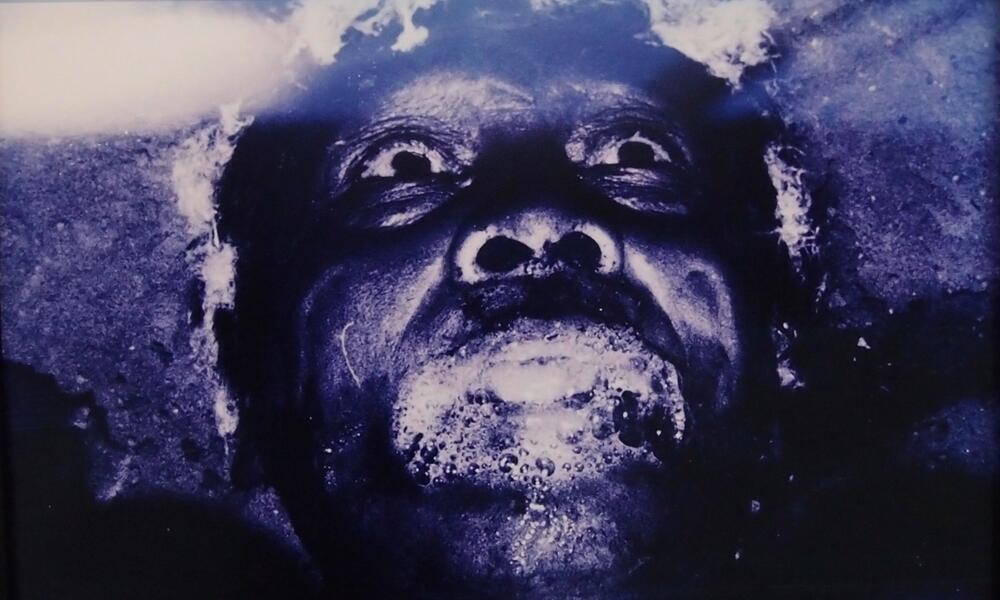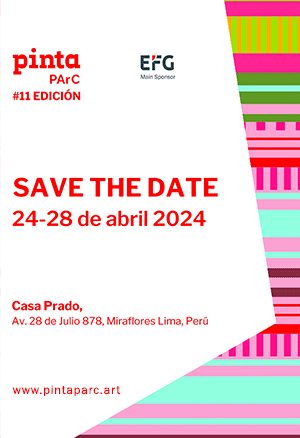CLAUDIA ANDUJAR: LA LUTTE YANOMAMI - FONDATION CARTIER POUR L’ART CONTEMPORAIN
CLAUDIA ANDUJAR: LA LUTTE YANOMAMI - FONDATION CARTIER POUR L’ART CONTEMPORAIN
The Cartier Foundation presents the largest exhibition dedicated to the work of Brazilian photographer Claudia Andujar who, since the 1970s, has dedicated her life to the photography and defense of the Yanomami, one of the most important indigenous communities of the Brazilian Amazon.

It shows more than 300 black and white or color photographs, unpublished works, an audiovisual installation, as well as drawings made by Yanomami artists and historical documents. Reflecting the two inseparable sides of his reflection, one aesthetic and the other political, reveals Claudia Andujar's great contribution to photographic art and the essential role she plays in defending the rights of the Yanomami Indians and the jungle that they inhabit.
Her first contact with the Yanomami dates back to 1971, while participating in a report on the Amazon; fascinated, she decided to undertake a deep photographic work on the Yanomami world. The photographs taken during this period reveal the various techniques with which he experimented to translate what he perceived from the shamanic experience of the Yanomami. When applying vaseline to the lens of your camera, using infrared film or playing with light, Claudia Andujar creates visual distortions that give her images a certain surrealism. It favors the close-ups of faces or fragments of the body, and creates chiaroscuro effects to establish a feeling of intimacy and to empathize the interiority of its subjects. At the same time and to better understand their culture, she proposes the Yanomami to represent their own metaphysical universe by providing them with paper, pens and markers. The exhibition presents a selection of these drawings that show mythological or ritual scenes and shamanic visions.
The end of the 1970s marked a turning point in her career. The construction, by the Brazilian military government, of the Transamazonian highway in the south of the Yanomami territory opens the region to deforestation, as well as to agricultural colonization projects, and causes the destruction of entire communities by promoting the spread of epidemics. This dramatic situation that reminds her of the genocide she witnessed in Europe, pushes her to participate fully in the fight for the defense of the rights of the Yanomami and the protection of their jungle. In 1978, he founded with missionary Carlo Zacquini and anthropologist Bruce Albert, The Commissão Pro-Yanomami (CCPY) and embarks on a campaign of almost fifteen years for the delimitation of its territory, an essential condition for the physical and cultural survival of this town.
At that time, during a vaccination campaign, Claudia Andujar takes photographs of the Yanomami carrying a number around her neck for identification on medical records. Later she will resume these photographs in one of her most famous series "Marcados". The ambiguity of these images lies in the discomfort created by the numerical identification of individuals, which reminds of Jewish tattoos during the Shoah, although the process here, on the other hand, is set up for the survival of a community. Unpublished photographs of this series are exhibited for the first time at the exhibition. In response to the decrees signed by the Brazilian government (1989) to dismember the Yanomami territory in an archipelago of nineteen micro reserves, created Genocide of the Yanomami: Death of Brazil (1989-2018), an audiovisual manifesto produced from photographs taken from her archives that the artist photographs again using various filters and lighting. True highlight of the exhibition, this work shows the turmoil of an indigenous world devastated by the depredation of Western civilization. A soundtrack of Yanomami songs and experimental music accompanies the installation. By narrating the struggle of a lifetime and revealing the richness of Claudia Andujar's work, the exhibition shows for the first time her work in all its splendor and complexity. It offers an immersion in the cosmological universe and daily life of the Yanomami, as well as a powerful political accusation of the abuses of those who are victims.




